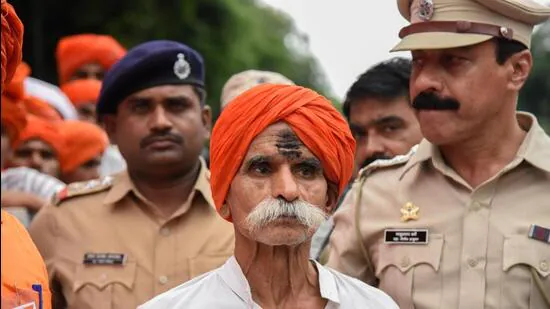
In a significant development in the Bhima Koregaon case, the Supreme Court of India has granted bail to activists Vernon Gonsalves and Arun Ferreira. The case, which has garnered national and international attention, has been a matter of contention and controversy since its inception. The bail order comes as a ray of hope for the activists who have spent a considerable amount of time in custody.
The Bhima Koregaon case traces its roots back to January 1, 2018, when violence erupted in the village of Bhima Koregaon, Maharashtra, during the bicentenary commemoration of the Battle of Bhima Koregaon. The violence led to the loss of several lives and left many injured. Subsequently, the Pune Police filed cases against several activists and intellectuals, alleging their involvement in inciting the violence and having links with banned Maoist organizations.
Among those accused were Vernon Gonsalves and Arun Ferreira, both prominent activists known for their work on issues related to social justice, human rights, and marginalized communities. They were arrested in August 2018 under the stringent Unlawful Activities (Prevention) Act (UAPA), which allows for prolonged detention without bail.
The case against Gonsalves and Ferreira has been a subject of controversy from the outset. Civil society organizations and human rights activists have raised concerns about the alleged misuse of anti-terrorism laws to stifle dissenting voices and suppress social activism. They argue that the arrests were an attempt to quell dissent and intimidate those who question the government’s policies.
The bail applications of Gonsalves and Ferreira were rejected multiple times by lower courts, citing the gravity of the charges and the prosecution’s insistence that they posed a threat to national security. However, human rights advocates argued that the stringent provisions of the UAPA effectively denied the activists their right to a fair trial and due process.
After spending more than four years in custody, the Supreme Court finally intervened to grant bail to Vernon Gonsalves and Arun Ferreira. The court considered the prolonged duration of their detention without trial and observed that mere dissent or ideological differences could not be equated with acts of terrorism.
The court’s decision has been applauded by human rights organizations and activists who have long demanded the release of Gonsalves and Ferreira. The judgment is seen as a positive step towards safeguarding civil liberties and upholding the principles of justice and fairness.
The Bhima Koregaon case has been a matter of intense debate in India’s socio-political landscape, with people holding diverse opinions on the arrests of Vernon Gonsalves and Arun Ferreira. The Supreme Court’s decision to grant bail to these activists marks a crucial turning point in the legal battle. It reinforces the principle that the right to dissent is a fundamental aspect of a democratic society and that stringent anti-terrorism laws should not be misused to suppress activism and freedom of expression.
While the granting of bail provides temporary relief to Gonsalves and Ferreira, the broader concerns about the misuse of anti-terrorism laws and the shrinking space for dissenting voices remain pertinent. The case serves as a reminder of the importance of upholding democratic values and ensuring that justice is accessible to all, irrespective of their ideologies. As the legal proceedings continue, it is essential to remain vigilant in safeguarding civil liberties and protecting the democratic fabric of the nation.











